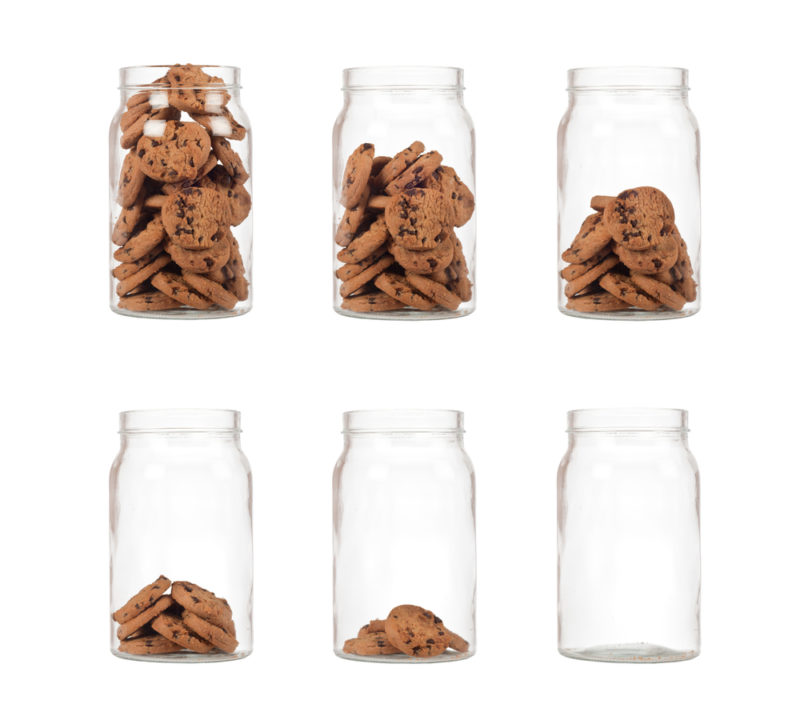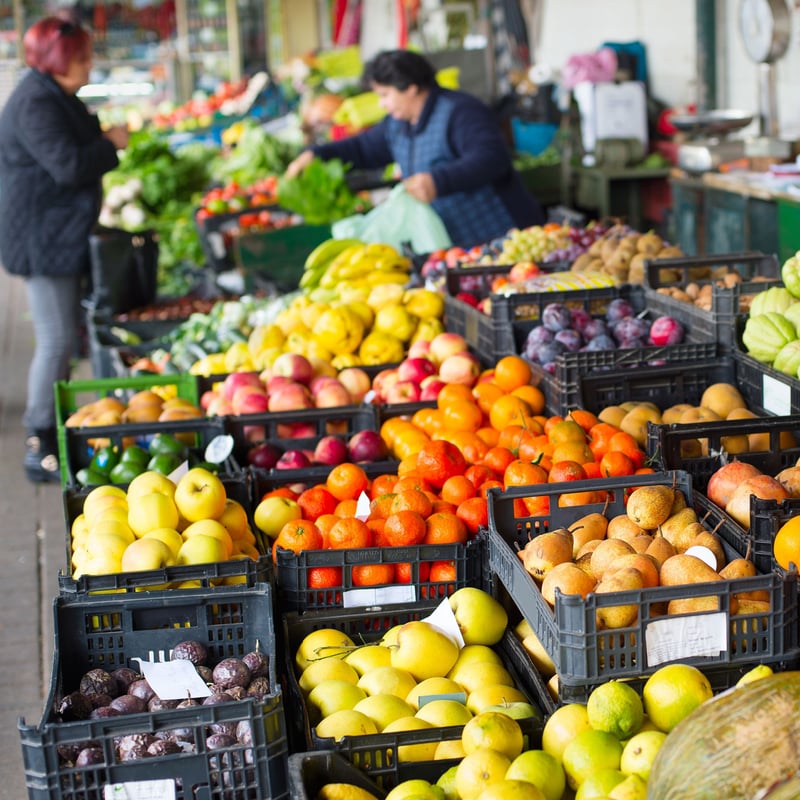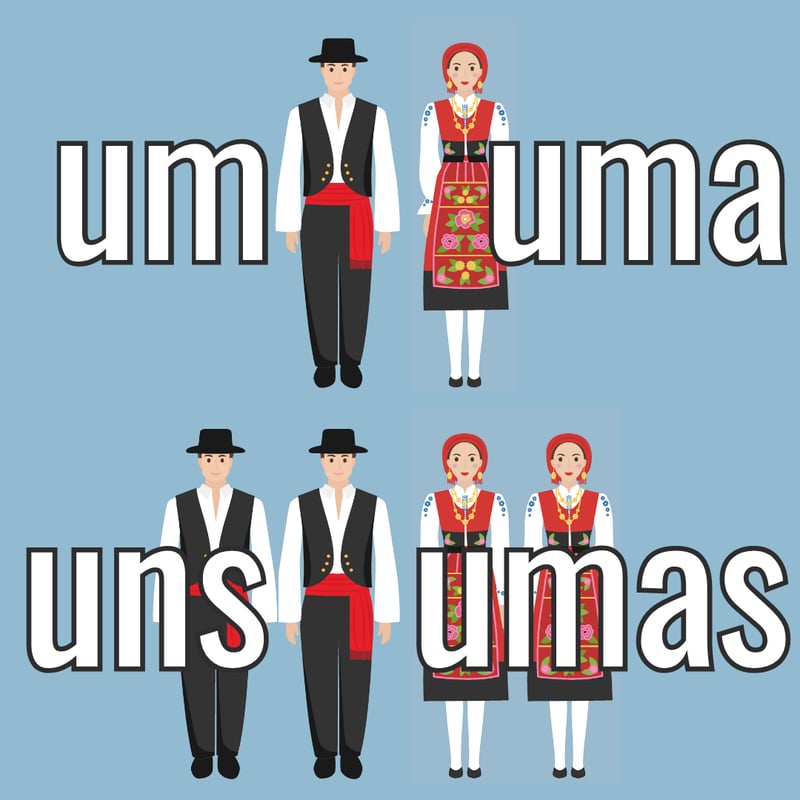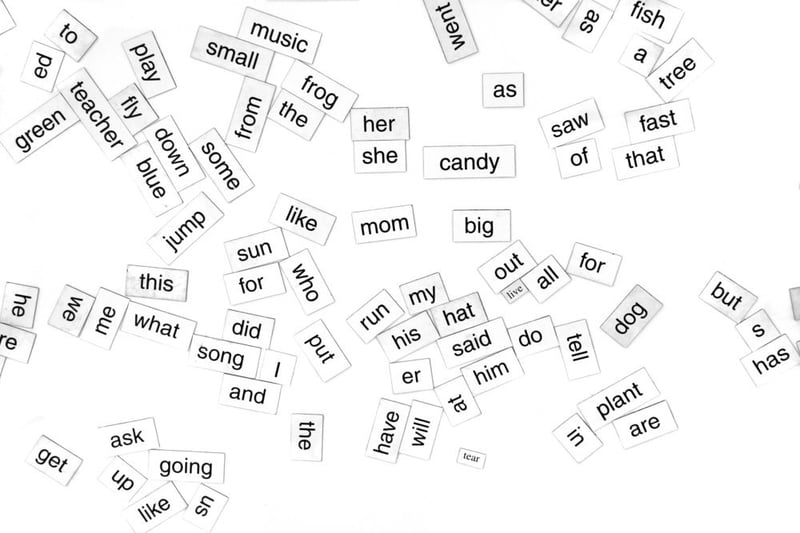A customer asks questions about prices and quantities while shopping for fruits and vegetables.
Na Mercearia
At the Grocery Store
Forming Portuguese Numbers in the Tens, Hundreds, and Thousands
In the Numbers 1 unit, we gave you an overview of many different types of numbers, and we practiced with just 0-19. Now it’s time to pick up where we left off, so we can start using higher numbers. The lessons in this unit will focus on Portuguese numbers in the tens, hundreds, and thousands.
Indefinite Articles in Portuguese
How to Say A, An, & Some In Portuguese We just learned how to say “the car” using definite articles, but what if you want to talk about “a car” in general? This is called an , because we’re talking about an undefined car, rather than a specific instance of a car. In English, we […]
Introduction to Numbers in Portuguese
In this unit, we’ll learn about Portuguese numbers, known as or . Números are just one type of , but they are so important that we thought they deserved their own unit. We’ll explore some of the other quantifiers in the How Much? How Many? unit. But for now, let’s go over the números, which […]
Existential Quantifiers: Many, Few, Some
In this lesson, we’ll learn about . Existential quantifiers provide information about quantity without specifying an exact quantity or amount. In English, we would use words like many, few, some, so much, another, several, and plenty. Let’s take a look at how to express these concepts in Portuguese. Muito, Muita, Muitos, Muitas Muito and muita are […]
Universal Quantifiers: All or None
In this lesson, we’ll learn about . Universal quantifiers are quantifiers that apply to every element of a given group. In English, this would include words like all, none, any, both, and every. Let’s learn about each of the words used to express these concepts in Portuguese. Todo, Toda, Todos, Todas Todo and toda are the singular […]
Interrogative Quantifiers: How Much? How Many?
In this lesson, we’ll take a look at . Interrogative quantifiers introduce questions related to quantities. These types of questions are invariably answered using another quantifier. The interrogative quantifiers include: How much? When used to question a quantity, quanto and quanta are the singular form equivalents to “how much” in English. (In an upcoming lesson, […]
Relative Quantifiers: As Much As
In this lesson, we’ll learn about . Relative quantifiers don’t specify an exact quantity, but instead tell us about how a quantity compares in relation to an unspecified whole. As expected, the determiner used matches the gender and number of the item(s) it refers to. Quanto, Quanta, Quantos, Quantas Quanto and quanta are used in […]
Indefinite Determiners
In this lesson, we’ll have a look at Indefinite determiners are words that express an undefined quality about the noun they’re referencing, similar to “other people”, “another beer”, or “certain things” in English. In Portuguese, indefinite determiners always agree in gender and number with the noun. Other & Another The singular forms of “other” or “another” […]
Definite and Indefinite Articles
In this lesson, we’ll compare Portuguese definite articles and indefinite articles. are small words that precede and define a noun. In Portuguese, articles take on different forms to agree in gender and number with the noun they define. In English, we just have the definite article the and the indefinite articles a, an, and some. […]
Adverbs of Degree: More, Less, etc.
Let’s look at some more adverbs of degree, which you’ll remember are always invariable. We’ll see examples of each of the following adverbs: Mais Mais simply means more, or plus. Menos On the flip side, menos is equivalent to the English less, or minus.
Forming Negative Phrases
There are a few different ways to say no, to make a sentence negative, or to refer to a quantity that is zero. Here are some of the important words to know: Not The simplest way to make a sentence negative in Portuguese is just to place the word before the verb. This is the […]
Talking about Quantity
These are three of the simplest, most common words used to talk about quantity in Portuguese: Countable Nouns When talking about countable quantities (which usually end in “-s” in English as well as Portuguese), muito, pouco and algum all change according to gender and number: Uncountable Nouns With uncountable nouns (such as virtues, qualities, or time, […]



 Eliana
Eliana Luís
Luís










